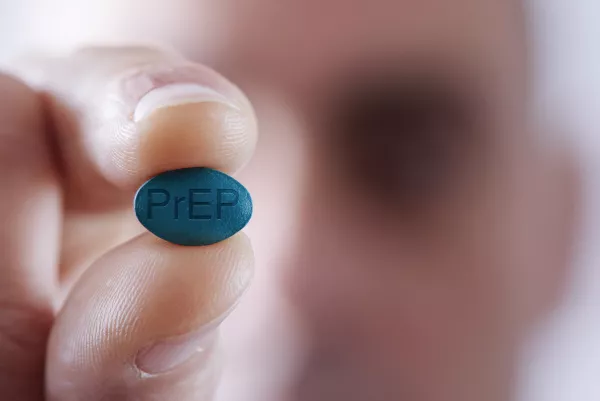Research Recap: June 6 - 17

A biweekly overview of recent studies published by Institute investigators and their collaborators spans a wide variety of topics, including:
Using distributed data network architecture for pharmacoepidemiologic studies; Association of thyroid peroxidase antibodies and thyroglobulin antibodies with thyroid function in pregnancy; Machine learning for novel insights into post-acute SARS-CoV-2 infection conditions; HIV prevention and the 340B Drug Pricing Program; Beverage taxes and implications for public health and health equity; Associations of PFAS with hypertensive disorders of pregnancy in the Project Viva cohort; and Clinician resources to address affordability challenges of asthma controller medications.
For all faculty publications, see our Publications page. For up-to-date media coverage and research findings, visit In the Media, and follow us on Twitter. To search for a subject matter expert, visit our Investigator Directory.
Go BIG and Go Global: Executing Large-Scale, Multi-Site Pharmacoepidemiologic Studies Using Real-world Data

Institute Investigator(s): Judith Maro, Darren Toh
Association of thyroid peroxidase antibodies and thyroglobulin antibodies with thyroid function in pregnancy
Thyroid autoimmunity is common in pregnant women and is associated with thyroid dysfunction and adverse obstetric outcomes. Most studies focus on thyroid peroxidase autoantibodies (TPOAbs) assessed by negative-positive dichotomy and rarely take into account thyroglobulin autoantibodies (TgAbs). A recent study by a team of investigators including Emily Oken examined the association of TPOAbs and TgAbs, respectively and interdependently, with maternal thyroid function through a meta-analysis of individual participant cross-sectional data from 20 cohorts in the Consortium on Thyroid and Pregnancy. Results, published in Thyroid: the Official Journal of the American Thyroid Association, found an increase in TSH with isolated TPOAb-positivity and TgAb-positivity, respectively, which was amplified for individuals positive for both antibodies. There was a dose-dependent association of TPOAbs, but not TgAbs, with TSH when adjusting for the other antibody. This supports current practice of using TPOAbs in initial laboratory testing of pregnant women suspected of autoimmune thyroid disease. However, authors suggest that further studies on the differences between TPOAb- and TgAb-positive women are needed to fully understand the spectrum of phenotypes.
Institute Investigator(s): Emily Oken
Machine learning reveals novel insights into post-acute SARS-CoV-2 infection conditions and informs treatment of COVID-19 patients with PASC conditions
The post-acute sequelae of SARS-CoV-2 infection (PASC) refers to a broad spectrum of symptoms and signs that are persistent, exacerbated, or newly incident in the post-acute SARS-CoV-2 infection period of COVID-19 patients. Most studies have examined these conditions individually without providing concluding evidence on co-occurring conditions. To address this knowledge gap, a team of investigators including Jason Block conducted a study leveraging electronic health records from two large clinical research networks from the national Patient-Centered Clinical Research Network (PCORnet) to investigate newly incident diagnoses that appeared within 30 to 180 days after a documented SARS-CoV-2 infection. Results, published in medRxiv: the Preprint Server for Health Sciences, identified four reproducible subphenotypes of PASC dominated by blood and circulatory system, respiratory, musculoskeletal and nervous system, and digestive system problems using machine learning. Investigators also demonstrated that these subphenotypes were associated with distinct patterns of patient demographics, underlying conditions present prior to SARS-CoV-2 infection, acute infection phase severity, and use of new medications in the post-acute period. This study provides novel insights into the heterogeneity of PASC and can inform stratified decision-making in the treatment of COVID-19 patients with PASC conditions.
Institute Investigator(s): Jason Block
Perverse Incentives: how the 340B Drug Pricing Program leads to widening disparities in PrEP access and equity

Institute Investigator(s): Douglas Krakower, Julia Marcus
Evaluating the evidence on beverage taxes and implications for public health and health equity
Sugar-sweetened beverages (SSBs) are a key contributor to a decades-long surge in diet-related chronic disease, resulting in the implementation of SSB taxes in more than 45 countries and several local jurisdictions. A group of researchers led by Joshua Petimar published a commentary piece in JAMA Network Open discussing a recent literature review by Andreyeva et al. of the large body of research on this worldwide tax policy. Authors conclude that this literature review demonstrates that SSB taxes are an effective tool to reduce SSB purchases and have the potential to improve diet and health. However, they note the difficulty for any one policy to substantially move the needle on population-level health outcomes. They recommend that jurisdictions considering implementing these taxes should design them in consultation with lower-income and marginalized communities, which may bear the short-term burden of the tax, even if they reap longer-term health benefits, emphasizing the importance that the revenue is reinvested in ways that support their social and economic needs.
Institute Investigator(s): Joshua Petimar
Associations of PFAS with hypertensive disorders of pregnancy in the Project Viva cohort
Hypertensive disorders of pregnancy (HDP) affect up to 10% of pregnancies in the United States and are associated with substantial maternal and neonatal morbidity and mortality. Per- and polyfluoroalkyl substances (PFAS) are associated with adverse cardiometabolic outcomes during pregnancy, but associations between PFAS and HDP are inconsistent and joint effects of PFAS mixtures have not been evaluated. Toward this aim, a team of researchers including Marie-France Hivert and Emily Oken examined PFA concentrations in plasma samples from over 1,500 individuals in the Project Viva cohort. Results, published in Environment International, found that exposure to certain PFAS may increase the odds of gestational hypertension during pregnancy, with potential implications for subsequent maternal and child health outcomes.
Institute Investigator(s): Marie-France Hivert, Emily Oken
A reply to "When too much is too much" and a call for clinician resources to support patients through affordability challenges for asthma controller medications

Institute Investigator(s): Alison Galbraith, Ann Chen Wu